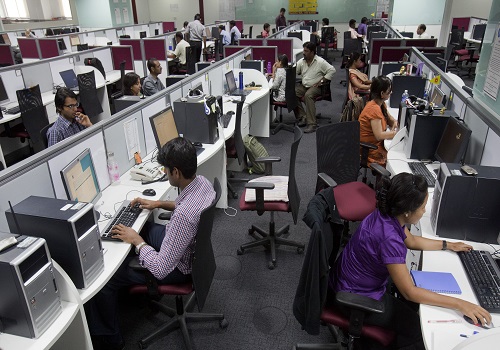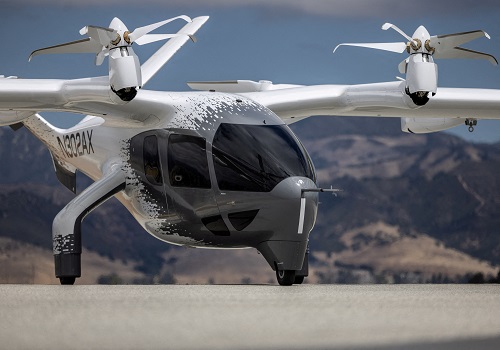The Role of Technology in Shaping the Future of International Tourism Post-2024

As the world continues to recover from the disruptions caused by the pandemic, international tourism is witnessing an exciting transformation. The integration of technology in the travel industry is not only reshaping how travelers plan and experience their trips but also revolutionizing the way tourism businesses operate. By 2024 and beyond, technology will play an even more significant role in shaping the global travel landscape, enhancing convenience, personalization, and sustainability. Innovations such as virtual tours, smart luggage, AI-driven itineraries, and enhanced digital interfaces are setting the stage for a new era in tourism, where tech is as integral to the experience as the destinations themselves.
Virtual Tours: Exploring the World from Your Living Room
One of the most remarkable technological advancements that have already begun to shape tourism is the proliferation of virtual tours. This trend became especially significant during the pandemic when physical travel restrictions were in place. However, the appeal of virtual tours is far from over. Many destinations, museums, and attractions have leveraged virtual reality (VR) and augmented reality (AR) technologies to offer immersive online experiences.
Post-2024, the rise of high-definition VR headsets and improved internet connectivity will allow travelers to explore far-flung destinations, historical landmarks, and cultural exhibitions from the comfort of their homes. Virtual tours provide a more accessible way for people with limited mobility, budget constraints, or time limitations to experience international destinations. Moreover, these virtual experiences are becoming increasingly interactive, allowing users to engage with their surroundings, participate in local traditions, and even meet other "virtual" tourists from around the globe.
For businesses, virtual tours offer a cost-effective tool for marketing. Hotels, resorts, and destinations can provide potential customers with realistic previews of what to expect, increasing conversion rates and boosting tourism in off-peak seasons. This digital innovation will likely continue to grow as a supplementary offering to traditional travel experiences, helping to promote sustainable tourism by allowing people to “travel” without leaving their homes.
Smart Luggage: Streamlining the Travel Experience
Gone are the days of worrying about lost luggage or the hassle of manually checking in at airports. Smart luggage is one of the most groundbreaking technological innovations reshaping the travel industry. Equipped with GPS tracking, built-in battery chargers, and even biometric locks, smart luggage aims to make traveling smoother, safer, and more efficient.
By 2024, it is expected that nearly every luggage brand will feature smart technology, improving the overall travel experience. GPS-enabled smart suitcases allow travelers to track their bags in real time, providing peace of mind when they are uncertain about the status of their luggage. Furthermore, these devices can send alerts if a bag is misplaced, potentially saving time and reducing stress during travel.
Beyond tracking, some smart luggage can be charged via built-in power banks, ensuring your devices remain operational during long-haul flights or extended layovers. Biometric security features, such as fingerprint scanning, are becoming common in smart luggage, offering more secure ways to protect your belongings.
AI-Driven Itineraries: Personalized Travel at Your Fingertips
The future of travel lies in personalization, and AI is at the core of this revolution. In 2024 and beyond, artificial intelligence will continue to drive the development of personalized itineraries that cater to individual preferences and interests. With AI-powered travel assistants and apps, tourists will be able to create tailored itineraries that factor in their past travel behaviors, preferences for activities, local events, and even real-time weather and traffic conditions.
AI-driven platforms such as Google Travel, TripIt, and travel apps powered by platforms like ChatGPT are already providing real-time trip suggestions, helping travelers adjust their plans on the fly. For example, AI systems can recommend dining spots based on a traveler’s dietary preferences, suggest cultural activities in line with personal interests, or provide weather-related advice on what to pack or when to visit certain landmarks.
The integration of AI in travel planning will significantly improve the customer experience, reducing the time spent researching activities, and making travel more efficient. With machine learning, AI will adapt to users’ changing preferences over time, delivering increasingly accurate recommendations. This capability will be especially useful for international travelers looking to explore multiple countries, allowing for a seamless blend of cultural, recreational, and practical considerations.
The Integration of Tech for Smarter, More Efficient Airports
Technological innovations are also transforming the airport experience, particularly in the realm of digital check-ins and security. Biometric identification, for example, is already being used at airports around the world to expedite the check-in and security processes. By 2024, biometric technology will likely be the norm across international airports, eliminating the need for boarding passes and ID checks.
In addition, artificial intelligence and machine learning are being employed to predict flight delays, optimize airport operations, and improve the passenger experience. AI-driven systems can process vast amounts of data in real-time, allowing airports to manage passenger flow more efficiently and provide timely updates to travelers.
Smart airports will also integrate contactless technologies, reducing the need for physical interaction and improving hygiene and safety standards. From facial recognition for check-in to automated baggage claim systems, airports will become increasingly digitized, ensuring that the travel experience is seamless and efficient.
The Future of Travel: A Tech-Infused, Seamless Experience
Looking ahead, the travel industry is rapidly embracing digital innovations that make international tourism more accessible, convenient, and engaging. The continued evolution of virtual tours, smart luggage, AI-driven itineraries, and tech-enhanced airports are just the beginning. Technology will provide solutions to some of the most pressing challenges in tourism, such as sustainability, safety, and personalization, while enhancing the overall travel experience.
As the demand for more seamless, eco-friendly, and personalized travel experiences grows, so too will the integration of technology. From the planning phase to arrival, departure, and everything in between, tech will be woven into the fabric of international tourism, providing travelers with unprecedented levels of convenience, engagement, and flexibility.
For the tourism industry, embracing these technological advancements will not only improve customer satisfaction but will also serve as a catalyst for growth in the coming years. As we move further into the 2020s, the role of technology in international tourism will continue to grow, setting the stage for a new era of travel that is more connected, efficient, and enjoyable than ever before.
Conclusion:
Post-2024, international tourism will continue to be shaped by technological innovation. Virtual tours, smart luggage, AI-powered itineraries, and enhanced digital airport systems are just a few examples of the ways technology is reshaping the way we travel. As the tourism industry adapts to these changes, it will offer more personalized, efficient, and eco-conscious travel experiences that will continue to attract global tourists in the years to come. By embracing these innovations, the future of international tourism looks poised for a technological revolution, making travel more accessible, enjoyable, and sustainable for all.










Top News

Indian Oil Corporation trades higher on inking MoU with Maruti Suzuki










